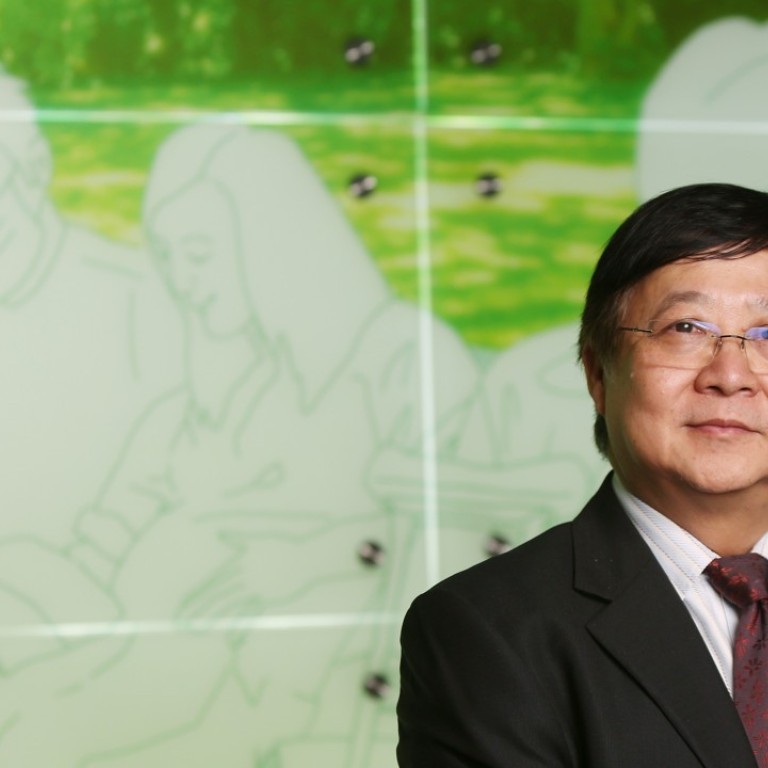
‘Could do better’: Hong Kong watchdog chairman on his efforts to protect the city’s sexual and ethnic minorities
Alfred Chan discusses his performance since becoming chairman of the Equal Opportunities Commission, including a number of media gaffes
The Council of Grand Justices in Taiwan on Wednesday ruled that current legislation preventing members of the same sex marrying violated their right to equality. The latest ruling could make the island the first place in Asia to legalise gay marriage.
Same-sex marriage is not recognised under Hong Kong law, as the Marriage Reform Ordinance defines the institution as the voluntary union for life of one man with one woman to the exclusion of all others.
Chan explained he did not have a legal background, although the commission’s legal team gave advice on pushing legislation for minorities.
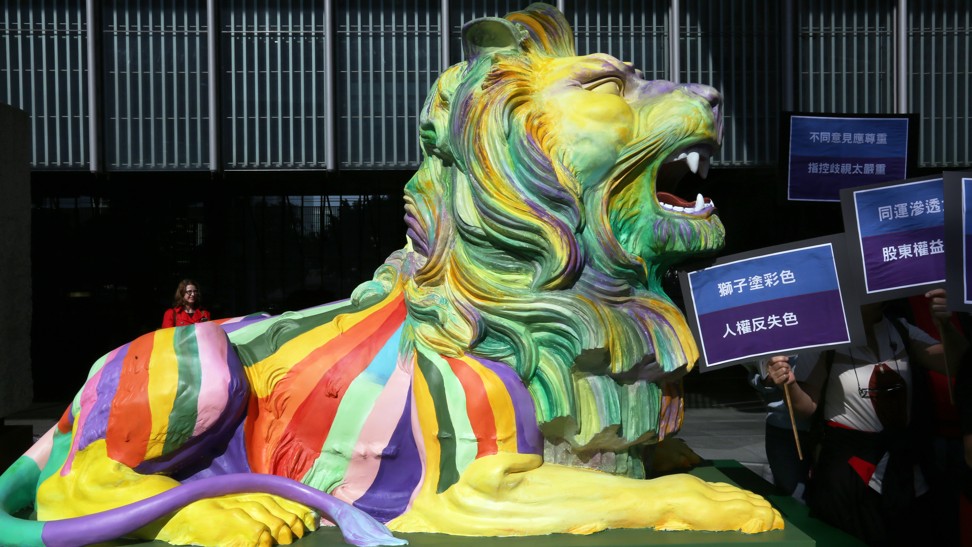
“Professor Chan has an impressive professional and public service record in fields such as health, welfare, the elderly and ethnic minorities in both Hong Kong and the international arena,” a government spokesman said of the appointment last year.
But some question if Chan was up to the job and criticised him for a lack of knowledge about gender, race, and lesbian, gay, bisexual, transgender and intersex (LGBTI) issues. Shortly after his appointment, Chan raised eyebrows by mixing up a Cantonese slang term – lou tong – that means a drug addict, with one describing a homosexual. He later explained it was a slip of the tongue during a media interview.
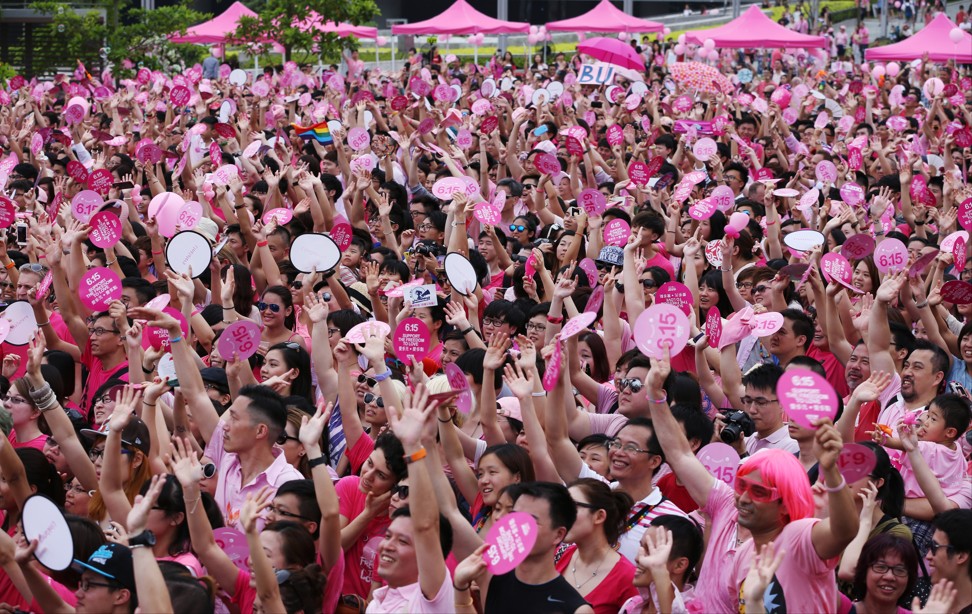
Why did you use the phrase “career line” in your speech during the event ? What were you trying to say? Putting that phrase in my speech was not my idea but that of the Women’s Foundation, which was the event organiser. On the event day, we tore up pictures showing women’s breasts, a promotional gimmick to break social stereotypes, and called on the public to focus on women’s work abilities instead of their physical appearance.
I was trying to appreciate and recognise women’s contributions to their families and society. So, during my speech, I said women did not only have one career line but four – they work hard for their parents, their husband’s parents, their husband and children, and their day job.
I actually did not agree with using the phrase “career line” because I believe men and women should be treated equally. But I eventually went along with it as it was a promotional gimmick, which the organiser hoped to use to draw media and public attention.
I was also trying to say how sons and husbands should support their mothers and wives by at least sharing housework. I was at the event to support women from a man’s perspective.
You have been commission chairman for more than a year. How would you describe your performance and what do you need to improve? I think my overall working record is steady but there is still room for improvement. I think I can do better in fighting for the legal protection and rights of sexual and ethnic minorities. I do not have a legal background, but I am glad that we have a strong legal team to push forward anti-discrimination laws.
This position issometimes underappreciated. Anyone in this position should understand that not everyone in Hong Kong will applaud you. You may be appreciated by only a small group of people, such as sexual minorities and the disadvantaged. You will also find it very hard to do your job if you can’t face lots of criticism. When I started the job in March last year, I strived for a good mental balance. Things became smoother in May last year when I started getting used to the job.
What do you think about Taiwan’s ruling in favour of gay marriage?
That is amazing news from Taiwan as its highest court has ruled in favour of same-sex marriage, a landmark decision that paves the way for Taiwan to become the first place in Asia to legalise same-sex unions. Globally, around 20 countries now permit same-sex marriage, including those with a long conservative religious history such as Ireland, Spain and Argentina. It is time for Hong Kong, as an international city committed to equality, to engage in rational and constructive dialogue on this issue and consider our own path.
Hong Kong has made the final shortlist to host the 2022 “Gay Olympics”. But a lot of family concern groups still oppose the idea. Do you think Hong Kong is ready to host the gay games? There is always the first step. From an equal opportunities perspective, the gay games or the Paralympics would not be recognised nor would the idea of equality spread until we take the first step.
Objections to hosting the gay games reflect the fact that Hong Kong still lags behind when it comes to equal rights – a situation we need to improve. A sports event should not be limited by gender and nationality. The objections show we need to strengthen education on LGBTI rights, which is the commission’s duty.
Hong Kong must have a more up-to-date equality policy as it is an international city. The public and the government need to understand it is a basic principle to treat everyone in society equally.
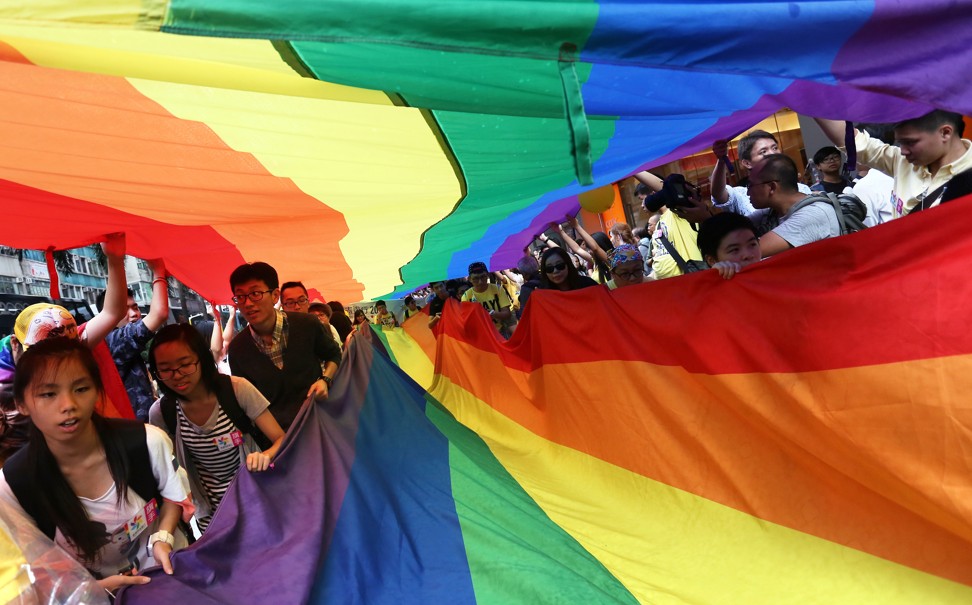
How would you react if your children told you they were homosexual? That’s a question I have been asking myself since I became commission chairman. As I am the equality chief, I must accept their sexual orientation, just as the commission believes everyone in society should be treated equally. A homosexual should not be discriminated against at work and other places because he or she comes out. Their work ability should be assessed based on their performance.
If my children are homosexual, I would tell them to enjoy their lives and I will always be a supportive father. I would hope that society would treat them equally.
Do you think racism is an issue in Hong Kong? Absolutely. A commission study last year showed ethnic minorities here were being discriminated against by landlords and banks in renting a flat or applying for a bank account and when they needed goods and services. Some property agents told us that landlords tended not to rent their flats to Indians and Pakistanis. This is obviously discrimination.
We have told the Hong Kong Monetary Authority that the banks shouldn’t make any assumptions based on a person’s race and nationality when they are applying for a bank account. The authority said it made the assumption because some places have money laundering records. But I stressed that every applicant, whether local or from an ethnic minority, should be treated equally. They shouldn’t link non-locals with money laundering.
Critics say the commission is a “paper tiger” as it does not have the power to take legal action to stop discrimination. How do you react to this? I actually agree with the critics. We are limited to filing civil lawsuits on behalf of complainants. We need lots of manpower and money for civil lawsuits.
This is also one of our obstacles in dealing with complaints. When complainants come to us, we make clear that we can only help file civil lawsuits. They then tend to deal with the case alone and look for legal aid.
We submitted 73 recommendations regarding anti-discrimination laws last year, in which 22 were suggested as top priorities, including advancing equality for women and those with disabilities. We have been in touch with the government and these suggestions will be discussed in the Legislative Council.
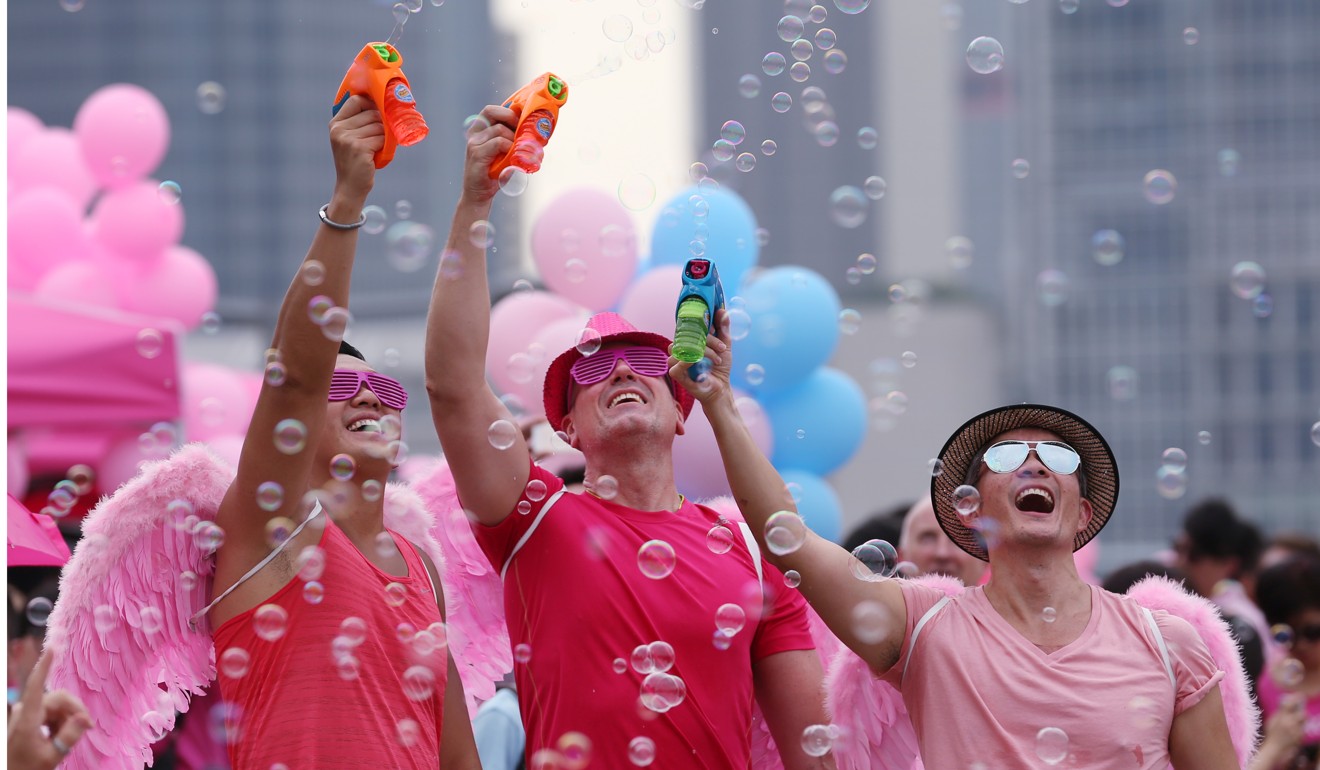
What has been your biggest challenge so far? It’s very difficult to convince the public that everyone should make an effort to build a fair and equal society. Many think that it’s not their job to provide equal opportunities and it’s only minorities that think equality is a big deal.
When we try to persuade big businesses and organisations to install barrier-free access for the disabled, they usually say: “I’m here to do business. It’s impossible for me to spend a large amount of money to alter my facilities to cater for the disabled. It should be the government’s duty.”
This mentality has to be changed, no matter what the government has or has not done. We can push equality forward through legislation, but we also need public engagement.
Former chairman Dr York Chow Yat-ngok was a vocal advocate of equality for sexual minorities. He often attended gay pride parades and seems to be more popular than you, especially in the LGBTI community. Have your predecessor’s achievements put pressure on you? I agree that Dr Chow helped the watchdog achieve a lot of things during his term. He did a lot of good work, especially for sexual minorities. I can say it would be very hard for me to persuade the government to adopt the commission’s recommendations if it were not for Dr Chow’s efforts.
Every former chairman, including Dr Chow, has contributed a lot to society. But the improvement is a result of a collaborative effort by different chairmen, not just one, although I hope I can leave a legacy like Dr Chow’s when I leave the commission.
QUIRKY QUESTIONS
What do you usually do for fun?
I usually go hiking, swimming and watch movies. When hiking, I usually go for easy trails such as on Lamma Island.
What is your favourite movie?
The last time I went to the cinema was to watch Snowden, directed by Oliver Stone. The main character was Edward Snowden played by Joseph Gordon-Levitt. It’s a great movie. I quite like it.
Who is your favourite singer?
For my generation, the Bee Gees were so popular. They are my favourite. And my favourite Cantonese singer is Sally Yeh.
Do you like animals?
I am a dog person. My father was kind of superstitious because he believed having pets would be bad for him and negative for his destiny. He thought animals would bring bad luck to his life. After he passed away, my sons got a dog. They were excited about having a pet dog at first, but then became less interested. I started taking care of it when it was six years old. But it died three years later.
Do you like travelling?
Yes. I like driving around in foreign countries. I especially like going to Japan for road trips. Last year, I went to Okinawa and drove around the island. I enjoyed it very much.

